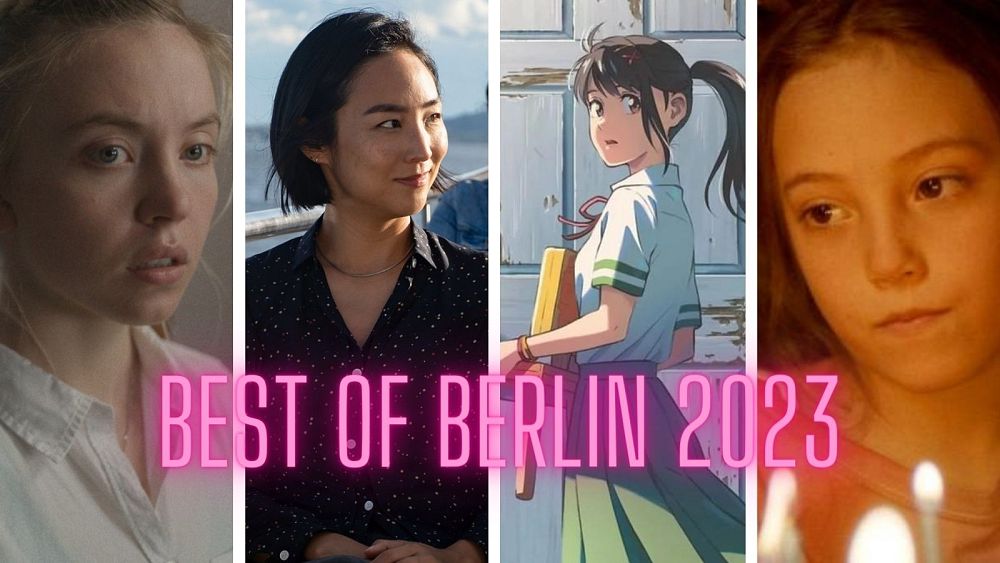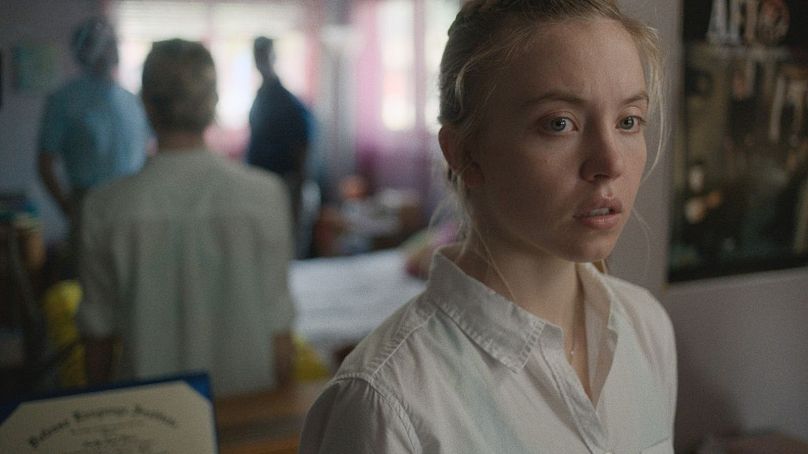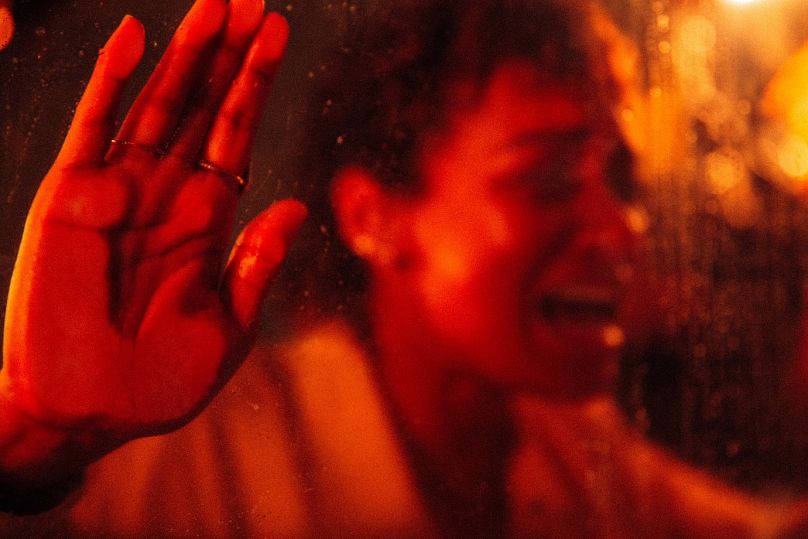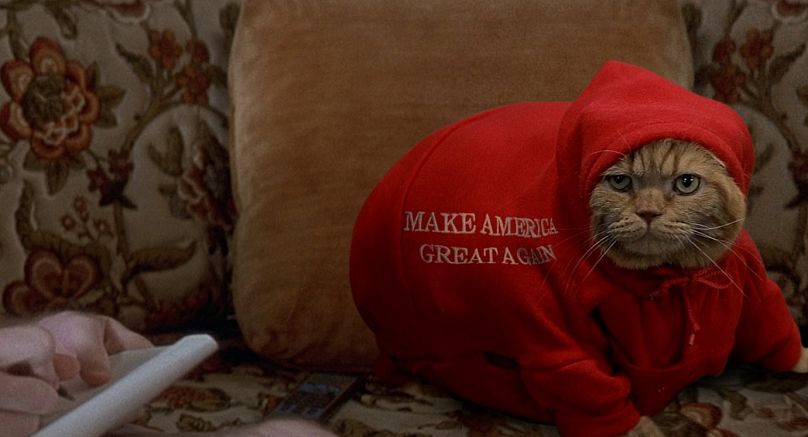
Something a little different for Film of the Week this week…
Now that the Berlin Film Festival red carpets have been rolled up and the dust has settled on the Golden Bears, it’s time to round up the best films of the 73rd edition of the Berlinale.
So, it’s not one film review but 10 previews this week.
Don’t say we don’t treat you.
These are the titles you should be looking out for over the coming months.
PAST LIVES
For her debut film, Korean-born Canadian playwright-turned-director Celine Song gave us Past Lives, a semi-autobiographical tale of two childhood friends who reconnect later in life, having been separated when one of their families emigrated from South Korea. Hae Sung (Teo Yoo) and Nora (Greta Lee) reconnect over social media and then in New York, where they confront notions of love, friendship, time and fate. They specifically deal with the Korean concept of “In-Yun,” a sense of providence that touches upon the moments that connect people in their past lives.
It could almost be a multiverse-story and ends up as a resonant romantic journey that’s masterfully told and impeccably scripted. Above all though, Past Lives eschews all clichés linked to love-triangles and romantic happy endings, and further shines through its genuinely profound observations about life’s intricacies and matters of identity.
Many will compare aspects of it to Richard Linklater’s Before trilogy (a fair touchpoint), but the humour and beautiful self-reflexiveness on show make it stand out as a unique take on how time passes and how the connections we forge along the way evolve in ways we never expected. The fact that Past Lives went home empty-handed from the Berlinale shouldn’t deter you: it stood out as the film with the most critical consensus throughout the festival. Expect to see this soulful title pop up on a fair few Best Films of 2023 lists come year-end.
Release date: May
TÓTEM
Hispanic cinema made a mark during this year’s Berlinale, and this is the title that really should have won the Golden Bear.
Mexican writer-director Lila Avilés creates an intimate yet bustling ensemble piece covering one day, as seen through the gaze of a seven-year-old girl, Sol (Naíma Sentíés). The less said the better. All you need to know is that the film’s action spans a single day, beginning in a bathroom where Sol and her mother Lucia (Iazua Larios) are getting ready for a family gathering. Their exuberance and joyful connection takes a sudden turn when the young girl reveals what her wish is for the big day: “For Daddy not to die.”
Avilés manages to gorgeously and compassionately convey how children comprehend the world of adults and life and death’s co-existence beyond what they are given credit for. It’s a thematically rich piece that appears small due to the confined interiors it navigates, but its scope and heart are huge. Tótem was a true revelation of the festival and a significant step-up from Avilés’ already strong debut film, The Chambermaid.
Release date: TBC
EL ECO (THE ECHO)
Expectations were high for this one, as one of the greatest films to come out of the Berlinale in the last decade is Tatiana Huezo’s 2016 film, Tempestad.
El Eco is a harder film to adequately describe but it is every bit as masterfully textured as Tempestad. The documentary takes its name from the remote mountain community in Puebla state, Mexico. There, life consists of the most elementary things. As the press notes state: “Being a child here is an intense experience from day one, involving nature, animals and people. But also love, intimacy, illness and death.”
Huezo constructs an intimate portrait of the tender and often harsh realities of an isolated community through three generations of women. We observe the care-working matriarchy and the responsibilities passed down from generation to generation, regardless of whether these life burdens are offered up prematurely. It’s an evocative and striking mosaic that celebrates communal joys and treasures small communities which seem fated to fracture.
Huezo went home with not one but two prizes for El Eco: Best Documentary and The Encounters Prize for Best Director – both well deserved, as this is one immersive dirge you shouldn’t miss.
Stay tuned to Euronews Culture for our interview with Tatiana Huezo.
Release date: TBC
SUZUME
One of this year’s high points was the sheer variety on show in the Competition selection. Festival programmer Carlo Chatrian made a point of stressing how much he wanted the line-up to be as eclectic as possible – and job well done. Documentaries, genre films, melodramas, and two anime films: Liu Jian’s Art College 1994 and Makoto Shinkai’s Suzume. The latter was the superior offering.
Following his international hits Weathering With You and Your Name, Shinkai returns with the story of a 17-year-old girl, Suzume, who has to travel around Japan closing mysterious magical doors / Pandoras boxes to prevent natural disasters. The visuals are gorgeous and fizzle with jaw-dropping detail, the humour is far weirder than you’d expect, and the way in which this environmental disaster movie unfolds is both refreshing and deeply moving at times.
Oh and there’s a naughty kitty cat called Daijin that you’re not likely to forget in a hurry.
The film exists somewhere between YA romance and apocalypse thrill ride, and has something to say not only about the natural world, but also concerning the way we heal in the wake of disasters, and how grief is inevitable no matter how hard we try to fight it. Shinkai explores these themes in emotionally engaging ways and the grandiose scale of this epic story (along with some visual kitsch) never gets in the way of a good cry. Suzume was already released in Japan last year, where it held the third biggest box office score in the country. Make sure you don’t miss out when it comes to a cinema near you.
Release date: April.
ROTER HIMMEL (AFIRE)
Whereas Hispanic and French cinema fared well this year (two bears were claimed by France – The Golden Bear for the moving but ultimately quite standard documentary Sur L’Adamant, and Best Director for Philippe Garrel and his eyerollingly dull Le Grand Chariot), German cinema didn’t impress in Competition. A disappointment, as the flagship German festival usually provides some excellent homegrown work.
Angela Schanelec’s Music was a protracted and maddeningly elliptic retelling of the Oedipus myth, a film you respect rather than enjoy; Emily Atef’s overlong Someday We’ll Tell Each Other Everything lived up to what you would expect of “German romanticism”; Christoph Hochhäusler’s contrived genre exercise Till the End of the Night was a complete wasted opportunity; and Margarethe von Trotta’s Ingeborg Bachmann – Journey into the Desert can thank Vicky Krieps for keeping it just about afloat.
Gott sei Dank then for Berlinale favourite Christian Petzold, who pulled it out of the bag with his newest film Roter Himmel (Afire). Billed the second part of Petzold’s so-called elemental trilogy which started in 2020 with Undine, Afire follows irritable young writer Leon (a fantastic Thomas Schubert playing a sort of snobbish Tartuffe) trying to finish his book during a beachside getaway with his friend Felix (Langston Uibel). Forest fires threaten nearby, and the unexpected presence of Nadja (Petzold regular Paula Beer) proves a major distraction for the wannabe scribe.
It’s Rohmerian tale that starts off using horror codes (broken down car in the middle of the woods) and turns into a playful comedy of manners which introduces a deceptively sophisticated meditation on how myopia and self-absorption are the enemies of creativity. Leon could even be said to represent the role of social media in modern life: obsessing about oneself while the world burns, and how – to paraphrase George Orwell – seeing what is in front of one’s nose is a constant struggle. Afire is not as plot-driven as Petzold’s previous dramas, but what initially seems like a straightforward film progressively reveals itself to be an emotionally layered drama and arguably Petzold’s best film since 2014’s Phoenix. The Berlinale jury seemed to agree, as the director went home with the runner-up gong, the Silver Bear Grand Jury Prize.
Stay tuned to Euronews Culture for our interview with director Christian Petzold.
Release date: April.
REALITY

Adapted from her play ‘Is This A Room’, Tina Satter’s Reality is a snapshot of recent US history recreated as a tense chamber piece.
Like in her play, the first-time feature director uses unedited original dialogue from FBI recordings and transcripts to re-enact the arrest of 25-year-old NSA contractor-turned-whistleblower Reality Winner (played to perfection by Euphoria’s Sydney Sweeney). The interactions between Winner and the FBI agents are very tense and this docu-drama shines through certain stylistic choices, including the use of glitches and literal on-screen redaction which replaces “bleeps” for very eerie and sudden frame disappearances.
By crafting such a stomach-knotting huis-clos and allowing Sweeney the frame to shine, Satter highlights that while this re-enactment may be about politics under Trump and the mechanisms of state power which descend upon the individual, it’s also about the way ordinary citizens are pushed to extreme acts under extraordinary circumstances. And how it’s always the same privileged few that get away with it.
Release date: TBC
TALK TO ME

The sidebar sections this year offered up some horror goodness, and were stronger for it. The genre often goes underrepresented at major festivals, and it was a joy to watch this Australian debut from directing brothers Danny and Michael Philippou.
Talk to Me follows a gang of teenagers who film group possession sessions at parties on their smartphones. They have discovered how to communicate with the afterlife and have made it a party game. The way it works is simple: hold an ominous hand statue (reportedly the embalmed hand of someone who could communicate with the dead), utter the words “talk to me” and a dead person materializes in front of your eyes. Then say “let me in” for the spirit to enter you for 60 seconds, leaving you afterwards with an addictive high that makes you want to repeat the experience. However, let the spirit stay inside you for too long, and it’ll possess you forever. What could possibly go wrong?
The Philippou brothers made their name with controversial YouTube videos on their RackaRacka channel, and their debut feature does not disappoint. They take a fairly simple, _Flatliners_-esque premise and draw as much mileage out of it without betraying the original concept or descending into cheap jump scare territory. Not that the shocks and scares aren’t there; several scenes of admirably realistic violence are brilliantly filmed and edited for maximum effect, and one eye-popping image (which shall remained unspoiled here) will haunt your nightmares for the foreseeable.
Concerned more with trauma, grief and the afterlife than it is with empty shock value, this skin-crawling and creepy gem deserves to go down as this year’s Smile. Only it’s miles better than Smile.
Release date: July
INFINITY POOL
Another horror entry this year was Infinity Pool, Brandon Cronenberg’s follow-up to his excellent 2020 bodyhorror thriller Possessor.
This sci-fi thriller which follows a couple (Alexander Skarsgård, Cleopatra Coleman) on vacation at an island resort. A fatal accident exposes a dark subculture of hedonistic tourism, and leaves them facing a zero-tolerance policy for crime: either be executed or, if you’re rich enough, create a double of yourself whose death you can watch as punishment.
While the Twilight Zone premise evolves to evoke aspects of Brian Yuzna’s body horror film Society at times, Infinity Pool slowly gives way to a more Triangle of Sadness “Aren’t the filthy rich entitled and disgusting?” satirical tangent. Cronenberg laudably avoids the obvious doppelganger narrative strands you might expect by calling them out, but some of the plot evolves in ways that are less convincing. At all times, however, the cast are there to keep the film firing on all cylinders, especially the ever-wonderful Mia Goth, who after the double tap of X and Pearl proves there’s little she can’t do.
All in all, it’s an imperfect but disturbingly playful and sexy ride about personal metamorphosis that doesn’t quite stick the landing but should deliver the goods for all those curious to witness what White Lotus in trippy hell would look like.
Release date: late March
HELLO DANKNESS

Aussie siblings Dan and Dominique Angeloro aka: Soda Jerk, grabbed hundreds of pirated film samples and mashed them up to create an 80-minute-long narrative divorced from original contexts.
The meticulously edited clips from films (Wayne’s World, American Beauty, A Nightmare on Elm Street), TV (The X Files, Rick and Morty, Euphoria), ads, news clips and online sources, create a playful and delirious satirical hodgepodge that bears witness to the clownish shitshow of American politics from 2016 to 2021. It also doubles up as a neat reflexion on the way we consume images, how clips circulate, as well as how image reappropriation and reinterpretation can lead to some very dark – sorry, dank – places.
Soda Jerk’s labour-intensive masterstroke doesn’t limit itself to all-too-easy Trump bashing and preaching to the converted; they use pop culture as a revealing force. Hello Dankness employs exclusively American titles to ultimately reveal itself as a modern Aesop’s fable, wherein the American eagle is wounded by an arrow made of its plumage.
Sadly, this hilarious narrative collage won’t be readily available, as the film clips are subject to copyright… Seek it out at further festivals or online if possible, but don’t expect it to pop up in cinemas any time soon.
FEMME
Femme follows Jules (Misfits and Candyman ’s Nathan Stewart-Jarrett), one of London’s celebrated drag artists. One night after a show, he is brutally attacked. Although Jules is able to recover physically, he withdraws from the outside world. Months later, he recognises his attacker Preston (played to scary perfection by 1917 ’s George MacKay) by chance in a gay sauna. He approaches him incognito and begins a relationship with the closeted homosexual in order to exact revenge.
Directors Sam H. Freeman and Ng Choon Ping have crafted a genre-bending queer revenge drama that wrestles with internalised homophobia and multifaceted masculine identities in a thrilling way. More than that, the filmmakers utilize codes from noir films and trust their sensational duo of actors enough to deliver something unexpected: audience sympathies sway and you yearn for a catharsis you never predicted.
It’s an impressive balancing act that makes Femme emerge as more than a cat-and-mouse thriller; it addresses the disguises we wear, explores the notion of retribution and teases the deeply burrowed traumas that lurk behind facades, all without falling into familiar traps or sensationalism.
Stay tuned to Euronews Culture for our interview with directors Sam H. Freeman and Ng Choon Ping.
Release date: TBC
